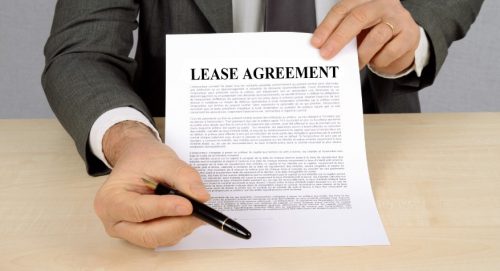When it comes to selling a commercial property, there are a million and one things to think about. One of the big questions that might be swirling around in your head is, “Do I need to give my commercial tenant the boot before I sell?” It’s a fair question and, like most things in real estate, the answer isn’t always cut and dry. So, grab a cup of coffee, and let’s dive into this together.
Do You Need to Evict a Commercial Tenant Before Selling a Property?
First things first, it’s important to understand the specifics of your situation. Commercial real estate can be a bit like a box of chocolates – you never know what you’re gonna get. The type of commercial lease in place (NNN, gross lease, modified gross lease, etc.), the terms of the lease, and the relationship with your tenant can all play a big role in determining your next steps.
The Lease Agreement

The lease agreement is basically the rulebook for your relationship with your tenant. It outlines what’s allowed, what’s not, and what happens if the property changes hands. Some leases include a clause that specifically addresses the sale of the property, which might allow the lease to be terminated early or require the new owner to honor the existing lease terms. It’s crucial to know what your lease says about this.
The Relationship With Your Tenant
If you’ve got a great relationship with your tenants, they might be more understanding and flexible about the sale. On the flip side, if things have been rocky, they might not be so cooperative. The nature of your relationship can influence how smoothly the process goes.
Reasons You Might Want to Sell With the Tenant In Place
Selling your commercial property with the tenant still hanging around might sound like a hassle, but it’s a super smart move, especially if you’re looking to sell commercial property fast.
Here’s why: imagine you’re shopping online for a new gadget. You see one that’s ready to use right out of the box, with all the cool features you need. Then, there’s another that you have to set up yourself, which might take some time and effort. Which one are you more likely to buy? Probably the first one, right?
Well, it’s kind of the same deal with buying and selling properties. Buyers love it when a property is already making money because it’s like that ready-to-use gadget. It means they don’t have to go through the hassle of finding a new tenant themselves, which can be a lot of work and take a long time.
Plus, showing that your property is already bringing in cash proves that it’s a good investment. This can make buyers more interested and help you seal the deal quicker. So, keeping your tenant can be a big plus when you’re looking to sell your commercial property fast.
Reasons You Might Want to Evict Before Selling
Of course, there are also reasons you might want to clear the decks before putting up the “For Sale” sign:

Higher Market Value
Sometimes, a vacant commercial property can fetch a higher price. This might be the case if the property is in a hot market or if the potential buyer wants to use the property for a different purpose.
Flexibility for Buyers
Some buyers want a blank canvas. They have their own plans for the property, and an existing tenant doesn’t fit into those plans. Selling vacant can open up your pool of potential buyers.
Unsafe for Habitation
If a property is deemed unsafe for habitation, there are several steps that can be taken, often depending on the severity and nature of the issues:
- Repairs and Improvements: Landlords are usually first given the opportunity to make necessary repairs or improvements to make the property safe i.e. structural issues, knotweed issues, flooding of the home
- Local Authority Involvement: If landlords fail to act, tenants can contact their local council. The council has the power to inspect the property under the Housing Health and Safety Rating System (HHSRS) and can issue improvement notices, prohibition orders, or take emergency remedial action if they find serious hazards.
- Eviction as a Last Resort: If a property is so unsafe that it cannot be made habitable, or if it is illegal to occupy (for example, due to being condemned or subject to a closure order), eviction may be a possibility. However, this is typically a measure of last resort and must follow legal processes. The rights of tenants to be rehoused in such scenarios can vary based on their situation and the local council’s policies.
The Legal Landscape
Before you make any moves, it’s critical to understand the legal implications. Evicting a commercial tenant isn’t like asking a house guest to leave. There are laws and regulations that protect tenants, and the eviction process can be complex and time-consuming.
Real estate laws vary from place to place. Before taking any action, make sure you understand the laws and regulations in your area. This might require a bit of homework or a consultation with a real estate attorney.

The Eviction Process
If you decide to go the eviction route, be prepared for it to take some time. You’ll need to provide proper notice, possibly go through a legal process, and potentially deal with appeals. It’s not a decision to be taken lightly.
Strategies for a Smooth Transition
Whether you decide to sell with your tenant in place or you opt for eviction, there are strategies to help make the transition smoother:
Open Communication
Keeping the lines of communication open with your tenant can go a long way. If you’re selling, let them know about your plans and how it might affect them. If you’re considering eviction, discussing it openly might lead to a voluntary move-out agreement.
Offer Incentives
Sometimes, a little incentive can encourage a tenant to leave willingly. This might be financial compensation or assistance in finding a new location. It’s often a faster and less contentious option than eviction.
Involve a Professional
Whether it’s a real estate broker, a lawyer, or a property manager, getting professional help can make the process smoother. They can offer advice, help navigate legal issues, and act as a mediator between you and your tenant.
Wrapping It Up
So, do you need to evict your commercial tenant before selling your property? The answer depends on your specific circumstances, your goals for the sale, and the terms of your lease agreement. In some cases, selling with a tenant in place can be a major advantage. In others, selling vacant might be the way to go.
Whatever you decide, make sure you’re informed about the legal implications, communicate openly with your
tenant, and consider enlisting professional help to guide you through the process. Selling commercial real estate can be a complex endeavor, but with the right approach, you can navigate it successfully. And remember, every situation is unique, so what worked for someone else might not be the best choice for you.
Here’s to making the best decision for your commercial property sale – cheers!





































